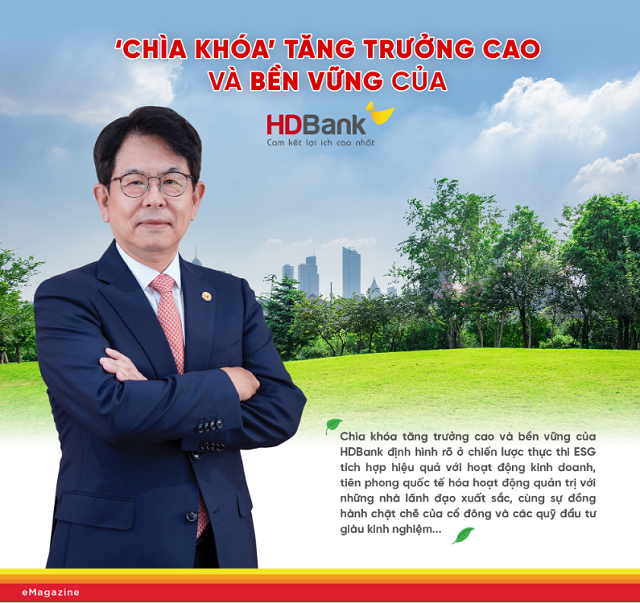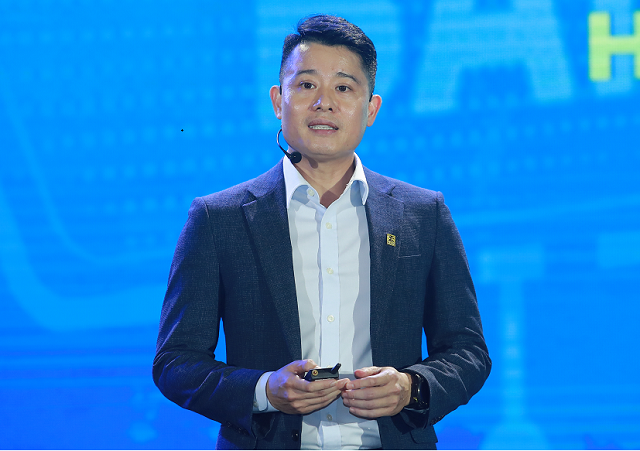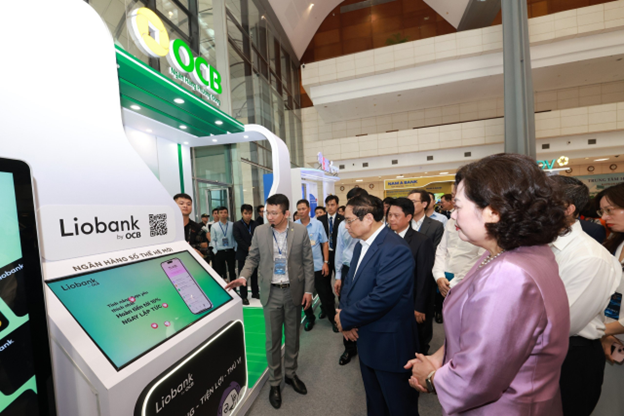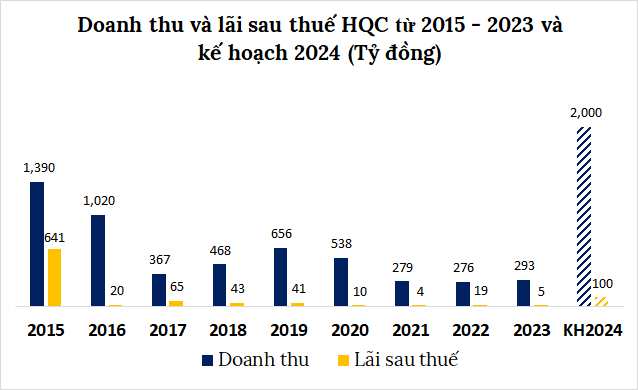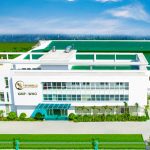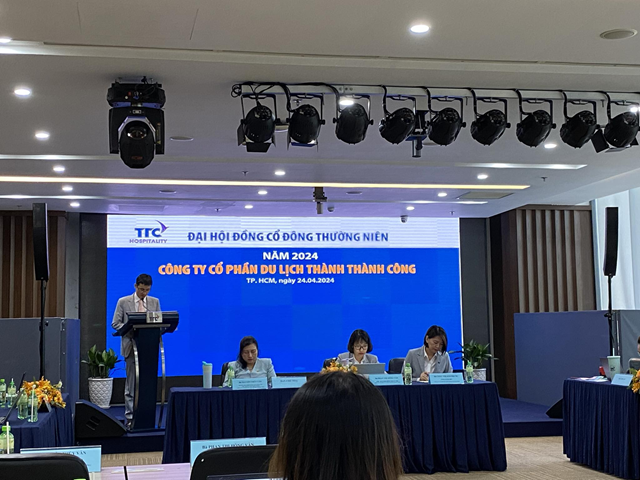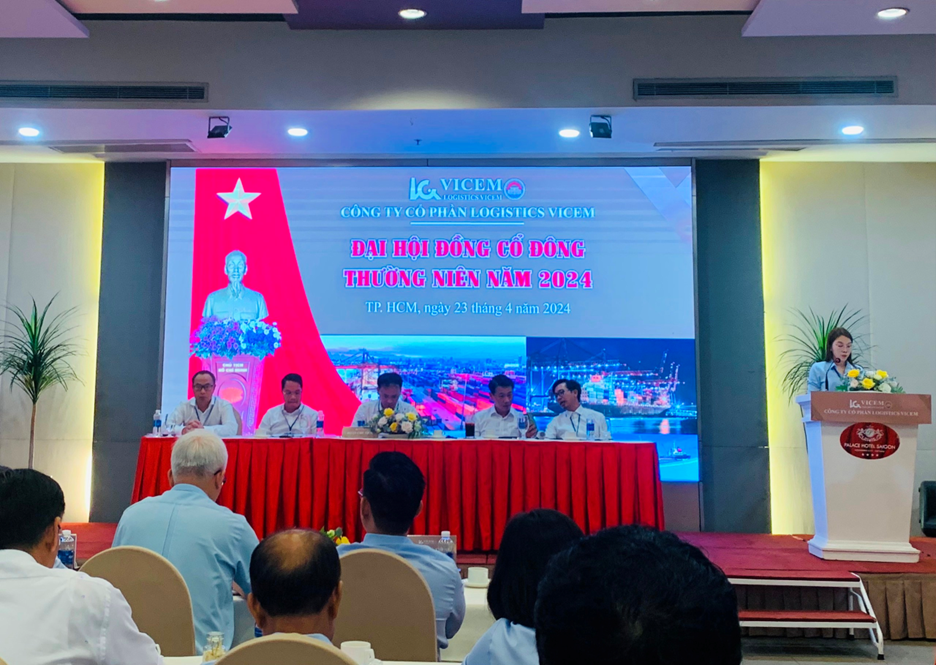Launching Agriculture Project in Laos – Hope for HAGL Agrico’s Recovery by Billionaire Tran Ba Duong
Recently, Hoang Anh Gia Lai International Agriculture Company (HAGL Agrico, stock code: HNG), owned by chairman Tran Ba Duong, has announced a resolution of the General Meeting of Shareholders (GMS) regarding the approval of an investment project in large-scale fruit tree cultivation combined with cattle farming in Attpeu and Sekong provinces, Laos.
The project covers a total land area of 27,384 ha with a total investment capital of 18,090 billion VND (equivalent to 750 million USD). This large-scale project is the main hope for the recovery of HAGL Agrico.
In which, HAGL Agrico will contribute 100% of its own capital, totaling 9,650 billion VND through capital contribution to the Limited Liability Company – Investment and Production – Trading Agriculture of Southern Laos. The remaining amount will be obtained from loans, with a value of 8,440 billion VND.
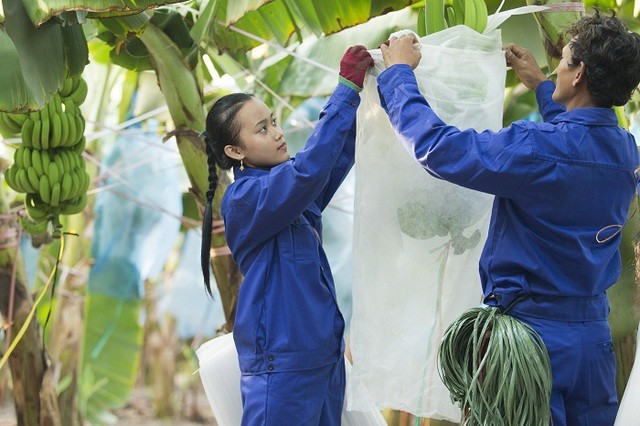
Photo: haagrico.com
According to HAGL Agrico, after completing the investment phase (estimated from 2028), the project will yield an annual export volume of fresh fruits of 624,000 tons (including 500,000 tons of bananas, 80,000 tons of pineapples, 18,500 tons of mangoes, 16,000 tons of grapefruits, and 9,500 tons of durians).
The processing export volume of fruits is estimated to reach 25,000 tons per year. The supply of breeding cattle for the local area is about 12,000 heads per year, and the export volume of beef is about 17,000 tons per year.
Accordingly, the expected revenue is 13,500 billion VND per year, with a profit of 2,450 billion VND (equivalent to 100 million USD). The expected profit margin is 18%.
The large-scale project in Laos is the main hope for the recovery of HAGL Agrico. In 2023, the company recorded revenue of 605.5 billion VND, a decrease of 18% compared to 2022. Deducting expenses, HNG had a net loss of over 1,050 billion VND, marking the third consecutive year of losses. Previously, in 2021 and 2022, the company suffered losses of 1,119 billion VND and 3,576.5 billion VND, respectively.
Looking back in time, in 2018, when the HAGL agricultural company faced financial difficulties and was on the verge of bankruptcy, Mr. Doan Nguyen Duc invited Mr. Tran Ba Duong – Chairman of THACO to support the company.
In August 2018, THACO invested in and acquired a 27.63% stake in HAGL Agrico. In January 2021, Mr. Duong was elected Chairman of HAGL Agrico’s Board of Directors. Since then, THACO has taken over the management of HAGL Agrico’s projects in Laos.
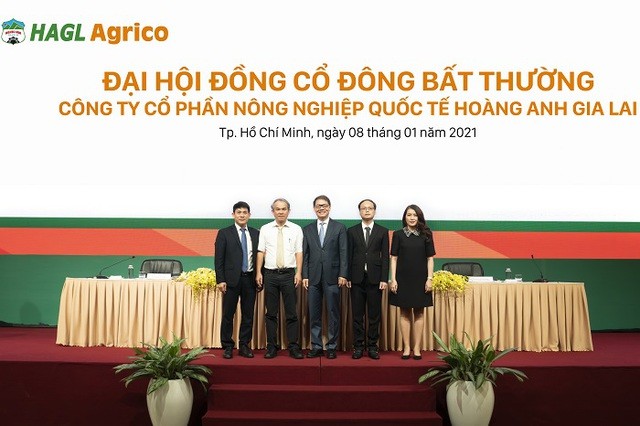
Mr. Tran Ba Duong and Mr. Doan Nguyen Duc at the extraordinary GMS of HNG in 2021. Photo: haagrico.com
Within the 3 years since joining HAGL Agrico, billionaire Tran Ba Duong has continuously poured money into this company, like pouring water into a “bottomless bucket.” The amount of 40,000 billion VND that Mr. Tran Ba Duong has poured into Bau Duc’s hands is overwhelming. The enterprise is constantly in a state of shortage of cash flow to pay overdue debts, lacking money to purchase materials for care and investment in important technical infrastructure…
Currently, after 6 years, HAGL Agrico’s accumulated losses have exceeded 8,000 billion VND, and the company’s equity at the end of 2023 continued to decrease to 2,300 billion VND.
Also growing bananas, durians, and raising cattle,… what will billionaire Tran Ba Duong do differently from former boss Bau Duc?
A decade ago, HAGL was the largest Vietnamese investor in Laos with a capital of 1.2 billion USD. This amount was invested by Bau Duc in various fields including sugarcane industry clusters, 6 hydroelectric power plants, rubber plantations, oil palm plantations, corn, and sugarcane on an area of 40,000 ha, and cattle farming.
The mountain tycoon did not hesitate to invest in agriculture, but the results did not meet expectations. So now, when preparing to launch an agriculture project in Laos, will Tran Ba Duong do things differently from former boss Bau Duc?
In an interview at the beginning of the year with Government’s online newspaper, billionaire Tran Ba Duong shared: “After HAGL’s failure in rubber planting (due to soil conditions), banana cultivation, and cattle farming (due to inadequate infrastructure, electricity, land, plus COVID-19), we are determined to do large-scale agriculture in an integrated and circular manner.”
Mr. Tran Ba Duong said that he has studied and learned from mistakes in planning, infrastructure investment, such as electricity, water, irrigation, water supply, or facilities like workers’ housing, packaging workshops, and other requirements for synchronized investment to create a large-scale agricultural production model in an integrated and circular manner.
In which, specialized crops are bananas and pineapples, in addition to breeding cattle, beef combined with the cultivation of other fruits such as durians, grapefruits… The chairman emphasized: In agricultural production, integrated circularity in a large-scale area is very important.
Mr. Duong gave an example: First, we have to breed cattle from reproductive to feeding, grazing, and fattening. We use discarded fruits for cattle feed, use by-products to make bedding material, green manure, then use cattle manure to make organic fertilizer, and then use the fertilizer for fruit trees. Even the water storage tanks, we also raise fish and microorganisms in this water, and step by step towards a no-waste agriculture. With such a large scale, transportation costs can be significantly reduced.
This is the fundamental difference in the way of doing agriculture compared to HAGL’s previous practices in Laos.
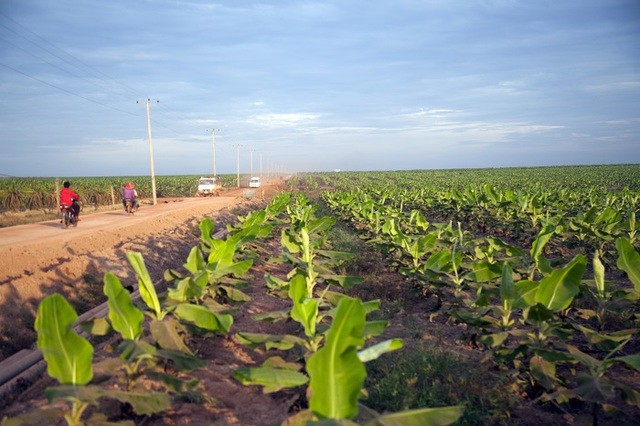
Illustration. Source: haagrico.com
On the other hand, for agriculture, production scale is very important, directly affecting costs and competitiveness. With the investment in large-scale agriculture, industrial management must be implemented for the entire value chain, from variety to land preparation, planting, care, harvesting, and consumption.
In addition, with large-scale production, mechanization is necessary, and the industrial and mechanical subsidiary of THACO will provide support in researching and implementing mechanization programs in agricultural production.
This is a significant advantage for Mr. Tran Ba Duong compared to former boss Bau Duc, as he owns an ecosystem that can mutually support each other.
Furthermore, in the future, Chairman Tran Ba Duong also revealed that THACO plans to develop agritourism in Laos. Specifically, after completing the large-scale agricultural production area, people can visit and enjoy a form of eco-tourism.
The large-scale integrated circular agriculture complex of HAGL Agrico covers a total area of 27,384 ha in Attapeu and Sekong provinces. This includes specialized fruit trees cultivation on 10,000 ha (8,000 ha of bananas; 2,000 ha of pineapples); fruit tree cultivation combined with cattle farming on 14,000 ha (5,000 ha of fruit trees: mangoes, grapefruits, durians), with a scale of 210,000 cattle heads.
In addition, there is a large industrial park covering 200 ha, including clusters of agricultural material production and agricultural machinery, clusters of fruit and agricultural product processing factories, office clusters, warehouses, and logistics operation centers.






















